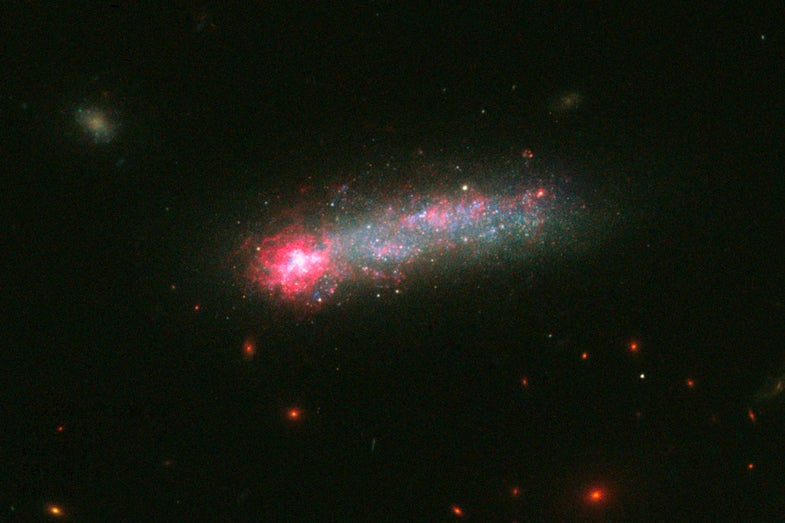Hubble Finds A Fireworks-Filled Tadpole Rocketing Through Space
A rare galaxy formation gives glimpses into the early universe

A “tadpole galaxy” has wiggled into view of the Hubble space telescope. Released today, these images show an outstretched galaxy that’s rare for our neighborhood of the universe. Its name is LEDA 36252, also known as Kiso 5639.
Eighty-two million light-years away, the dwarf galaxy is small but busy. A mass equivalent of 10,000 Suns erupt at the tadpole’s head—more horror movie inspiration than cute baby frog—in a show resemblant of our own galaxy’s early days. NASA describes the image as more of an Independence Day fireworks show.
The discovery will help scientists study “the accretion of cosmic gas, starburst activity, and the formation of globular star clusters,” according to a press release. It’s already surprising researchers, who didn’t expect so much new star activity, as these types of formations typically include mostly old stars. They think “intergalactic gas” raining down on Kiso 5639 less than 1 million years ago triggered the new star formations.
The images come a week after news that NASA would extend Hubble operations through 2021. The 26-year-old telescope has earned its keep, with more than 1.2 million observations and 12,800 scientific papers. Not bad for a millennial.